
Gambella National Park: A Hidden Gem of Ethiopia's Wilderness
Discover the untamed beauty of Gambella National Park, Ethiopia's hidden wilderness teeming with diverse wildlife and rich cultural heritage.
Nestled in the far western part of Ethiopia, Gambella National Park is a sanctuary of raw, untouched nature. This expansive park covers over 5,000 square kilometers and offers a refuge for a wide variety of wildlife. It's one of Ethiopia's lesser-known parks, making it an ideal destination for those looking to escape the crowds and experience nature in its purest form. The park is home to an impressive array of animals, including elephants, giraffes, and lions. Birdwatchers will also find Gambella a paradise, with over 300 bird species recorded in the area. The Baro River, which flows through the park, adds to its scenic beauty and provides a lifeline for both flora and fauna. Visiting Gambella National Park is more than just a nature trip; it's a cultural experience. The park is situated near various tribal communities, including the Anuak and Nuer people, who have lived in harmony with the land for centuries. Their unique way of life adds another layer of richness to your visit.
Local tips in Gambella National Park
- Best time to visit is during the dry season, from December to March, for optimal wildlife viewing.
- Hiring a local guide can enhance your experience, offering insights into the park's flora, fauna, and local cultures.
- Pack light but bring essentials like sunscreen, insect repellent, and a good pair of binoculars.
- Respect local customs and traditions when visiting nearby tribal communities.
- Check for travel advisories and health recommendations before planning your trip.
Gambella National Park: A Hidden Gem of Ethiopia's Wilderness
Nestled in the far western part of Ethiopia, Gambella National Park is a sanctuary of raw, untouched nature. This expansive park covers over 5,000 square kilometers and offers a refuge for a wide variety of wildlife. It's one of Ethiopia's lesser-known parks, making it an ideal destination for those looking to escape the crowds and experience nature in its purest form. The park is home to an impressive array of animals, including elephants, giraffes, and lions. Birdwatchers will also find Gambella a paradise, with over 300 bird species recorded in the area. The Baro River, which flows through the park, adds to its scenic beauty and provides a lifeline for both flora and fauna. Visiting Gambella National Park is more than just a nature trip; it's a cultural experience. The park is situated near various tribal communities, including the Anuak and Nuer people, who have lived in harmony with the land for centuries. Their unique way of life adds another layer of richness to your visit.
When is the best time to go to Gambella National Park?
Unmissable attractions to see
Suba Menagesha park
Explore Suba Menagesha Park, a breathtaking national park in Ethiopia filled with endemic wildlife, stunning landscapes, and serene hiking trails.
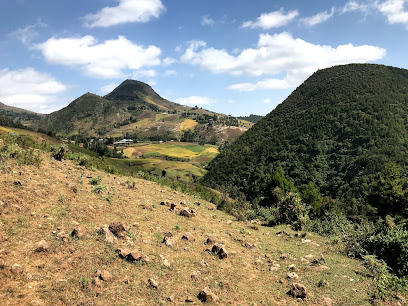
Kafa Biosphere Reserve
Explore Kafa Biosphere Reserve, a UNESCO site in Ethiopia, rich in biodiversity and cultural heritage, perfect for nature lovers and adventurers alike.
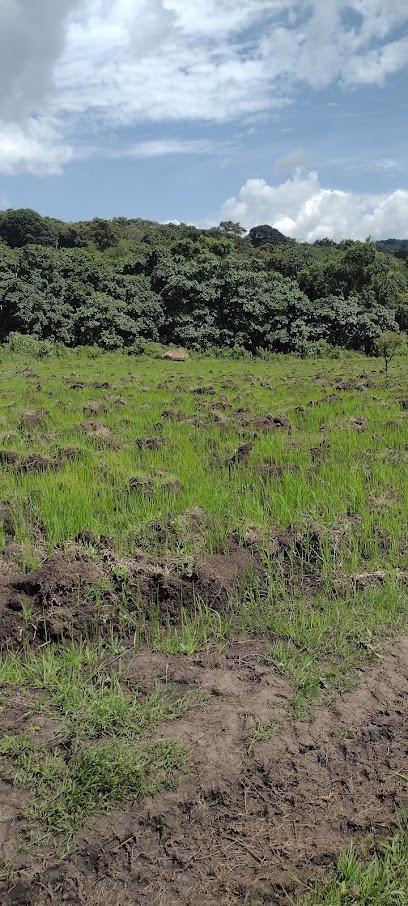
Dembi Dolo Park
Discover the serene beauty of Dembi Dolo Park, a lush natural retreat in Ethiopia perfect for relaxation, nature walks, and family outings.

Anfilo Forest
Experience the serene beauty and rich biodiversity of Anfilo Forest, a hidden gem in Ethiopia perfect for nature lovers and adventurers.

Gambella national park ጋምቤላ ብሔራዊ ፓርክ
Explore the breathtaking landscapes and rich wildlife of Gambella National Park, a hidden gem in Ethiopia for nature lovers and adventure seekers.

Nono Forest
Explore the enchanting Nono Forest in Ethiopia, a national forest rich in biodiversity and perfect for adventure and relaxation.

Pibor Dol (Planted Forest)
Discover the serene beauty of Pibor Dol, a planted forest in Gunjang, Ethiopia, perfect for nature lovers and peaceful retreats.

GARDEN
Discover the enchanting garden in Dembi Dolo, a serene oasis filled with vibrant flora and tranquil pathways perfect for relaxation.

Jok Dhure Greenland (Plains)
Experience the serene beauty of Jok Dhure Greenland in Gunjang, Ethiopia, a lush garden perfect for relaxation and nature exploration.

Baro View Gardens
Explore the serene Baro View Gardens in Gambela, Ethiopia, a lush paradise perfect for relaxation, nature walks, and appreciating local flora.

Menkana
Discover the enchanting beauty of Menkana Garden, a tranquil escape in Ethiopia's vibrant greenery perfect for relaxation and exploration.

Mana Bashir Ofgahaa
Experience the serene beauty and cultural richness of Mana Bashir Ofgahaa in Dembi Dolo, Ethiopia – a hidden gem for every traveler.
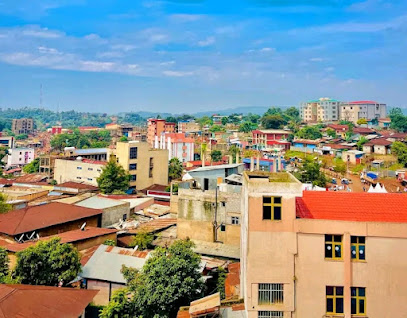
Abdi awuraris tafari
Discover the breathtaking landscapes and diverse trails at Abdi Awuraris Tafari, a premier hiking destination in Dembi Dolo, Ethiopia.

Nyabokelek
Explore Nyabokelek Garden in Barakwich for a serene experience amidst vibrant flowers and tranquil landscapes.

Jewi cam
Discover the essence of Ethiopian culture with an immersive farm household tour at Jewi Cam in Bonga, where tradition meets hospitality.

Essential places to dine
Yod Abyssinia Traditional Restaurant
Experience authentic Ethiopian cuisine and vibrant cultural performances at Yod Abyssinia Traditional Restaurant in Addis Ababa.
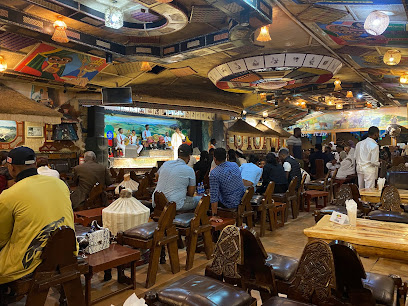
Kategna Restaurant
Experience authentic Ethiopian cuisine at Kategna Restaurant in Addis Ababa—where tradition meets flavor in every bite.
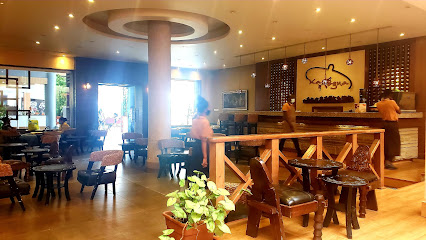
2000 Habesha cultural restaurant | Bole Atlas | 2000 ሀበሻ የባህል ሬስቶራንት | ቦሌ አትላስ
Discover authentic Ethiopian flavors at 2000 Habesha Cultural Restaurant in Addis Ababa's vibrant Bole district.
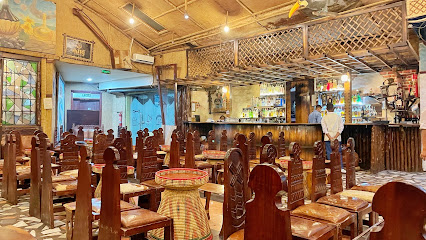
Dashen Traditional Restaurant
Savor authentic Ethiopian cuisine in an inviting atmosphere at Dashen Traditional Restaurant - where every dish tells a story.
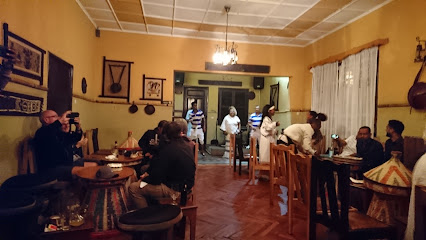
OM Indian Bistro | Bole Rwanda
Experience authentic Indian cuisine at OM Indian Bistro in Bole, Addis Ababa - where every dish tells a story.
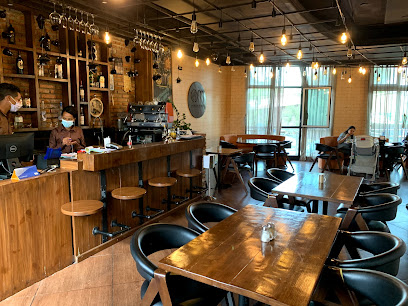
Totot Traditional food Hall | Gerji | ቶቶት | ገርጂ
Savor authentic Ethiopian cuisine at Totot Traditional Food Hall in Gerji—where tradition meets flavor in every dish.
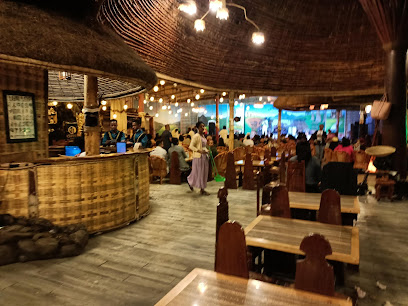
MK's Kitchen Bar
Experience authentic Ethiopian cuisine at MK's Kitchen Bar in Addis Ababa, where tradition meets flavor in a vibrant atmosphere.
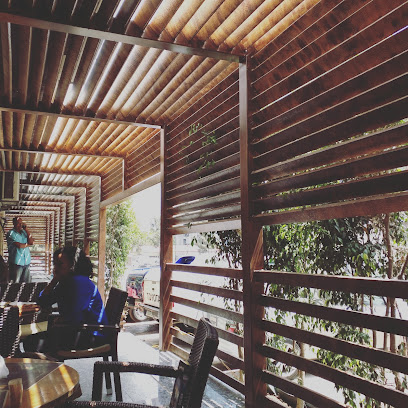
Ben Abeba
Discover authentic Ethiopian cuisine at Ben Abeba in Lalibela, where breathtaking views meet exceptional dining experiences.
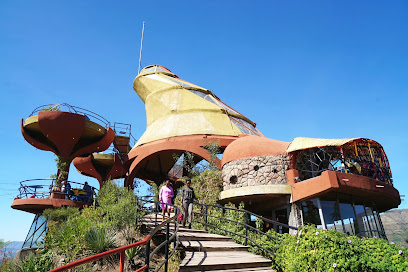
Hibir Ethiopia Cultural Restaurant | Bole | ህብር ኢትዮጲያ ባህላዊ ሬስቶራንት | ቦሌ
Savor the essence of Ethiopia at Hibir Cultural Restaurant in Bole - where authentic flavors meet vibrant cultural experiences.
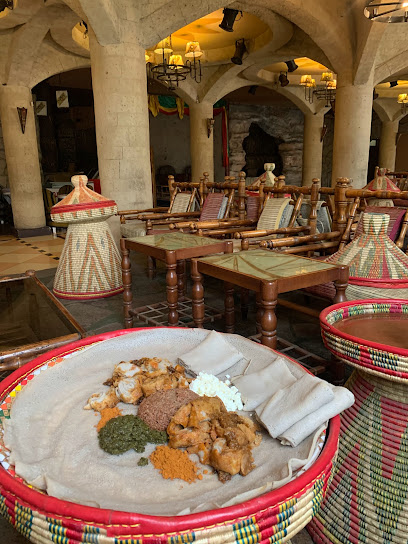
Mamma Mia Italian Restaurant & Bar
Experience authentic Italian flavors at Mamma Mia Italian Restaurant & Bar in Addis Ababa—where every meal feels like a trip to Italy.
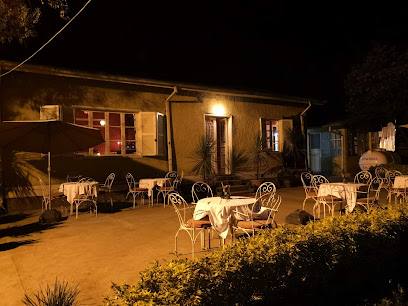
Mama's Kitchen | Bole Medhanialm | ማማስ ኪችን | ቦሌ መድሐኒአለም
Discover authentic Ethiopian flavors at Mama's Kitchen in Bole Medhanialm - a culinary delight for every traveler in Addis Ababa.
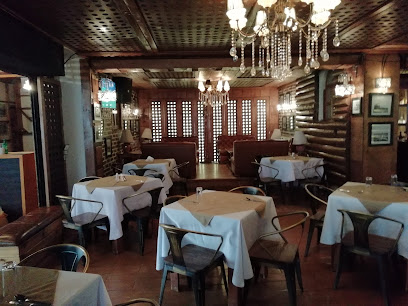
Trattoria Gusto
Experience authentic Italian flavors at Trattoria Gusto in Addis Ababa – where every meal feels like a journey to Italy.
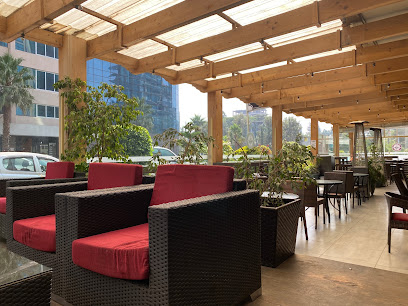
Addis Ababa Restaurant | Piazza |
Experience authentic Ethiopian cuisine at Addis Ababa Restaurant in Piazza – where every dish tells a story.
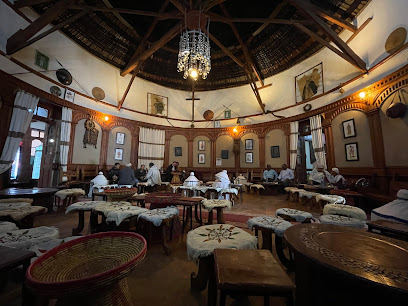
Checheho Cultural Restaurant and Hall | Gerji | ጨጨሆ ባህላዊ ሬስቶራንት | ገርጂ
Savor traditional Ethiopian cuisine and immerse yourself in cultural performances at Checheho Cultural Restaurant in Addis Ababa.
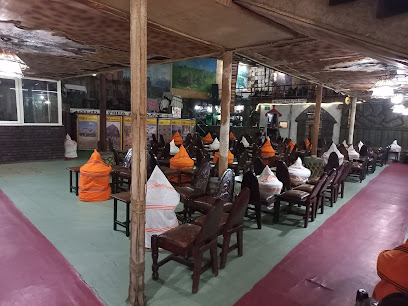
Kana Restaurant and Bar
Experience authentic Ethiopian flavors at Kana Restaurant and Bar in Lalibela – where every dish tells a story.
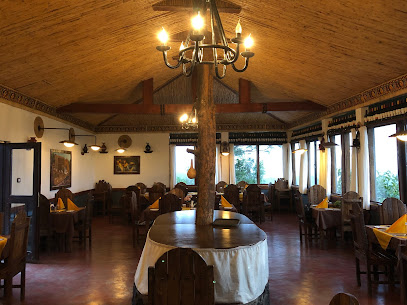
Markets, malls and hidden boutiques
Gambella National Park
Discover the breathtaking landscapes and rich wildlife of Gambella National Park, a hidden gem in the heart of Ethiopia's natural beauty.
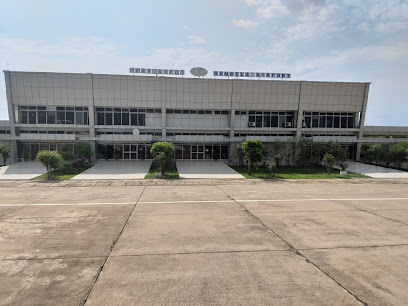
Nasir Sobat State
Explore the vibrant Nasir Sobat State Shopping Mall in Gambela, a perfect blend of local culture and modern shopping.
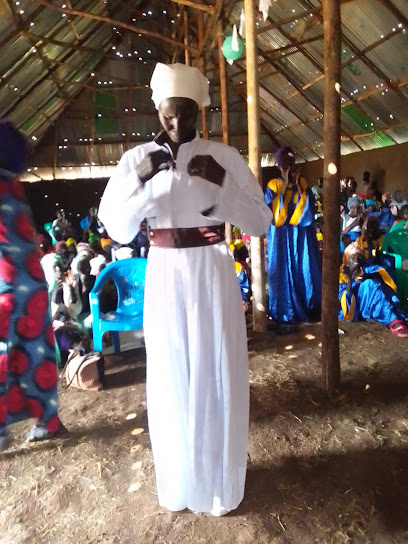
ኬር የገበያ ማዕከል
Explore Gambela's bustling ኬር የገበያ ማዕከል, a shopping haven filled with local culture, delicious cuisine, and vibrant community life.
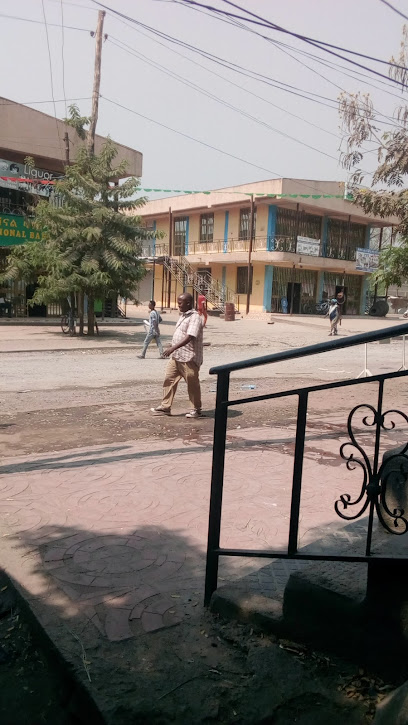
Araya GebreKidan Retail Store
Explore Araya GebreKidan Retail Store in Gambela for unique home goods and authentic Ethiopian craftsmanship, perfect for souvenirs and gifts.

Negash supermarket
Discover local flavors and vibrant shopping at Negash Supermarket in Gambela, Ethiopia, a must-visit for cultural immersion.
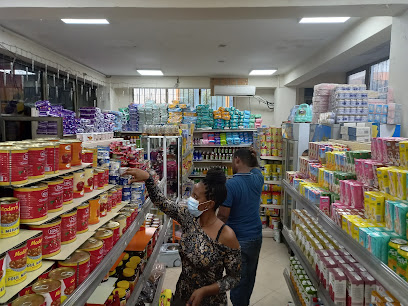
Abol
Discover the essence of Ethiopian coffee culture at Abol, a cozy coffee shop perfect for tourists seeking authentic flavors and warm ambiance.

Mesfin Shoping Center
Experience the vibrant culture of Gambela at Mesfin Shopping Center, where shopping meets local tradition and community spirit.

Mekule Mobile And Accessories
Explore the latest in mobile technology and accessories at Mekule Mobile and Accessories, a vibrant shopping destination in Gambela, Ethiopia.

Gambella secondary
Experience the authentic flavors and cozy ambiance of Gambella Secondary, a must-visit coffee shop in the heart of Gambela, Ethiopia.
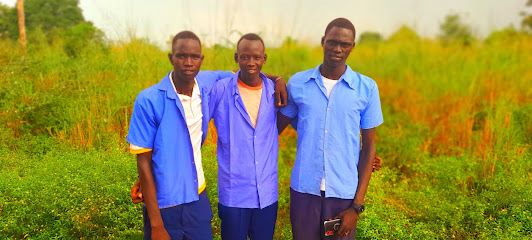
Desa Hailu Genral retail shop
Discover the charm of Gambela at Desa Hailu General Retail Shop, your go-to place for local goods and a taste of Ethiopian culture.
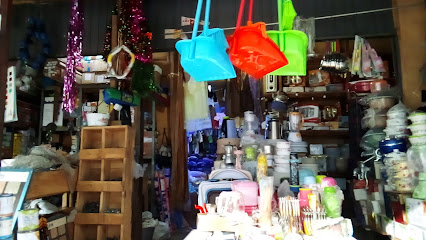
Zegeye's Home
Experience the warmth of Gambela's coffee culture at Zegeye's Home, a charming spot for relaxation and local flavors.

Gambella
Discover the tranquil charm of Gambella Church, a serene sanctuary reflecting Ethiopia's rich cultural heritage and spiritual traditions.

Bilisa dingeta
Discover Bilisa Dingeta in Gambela, a vibrant store showcasing local craftsmanship and unique cultural treasures for tourists and locals alike.

Agaro dresses and clothes shop
Discover traditional and modern Ethiopian fashion at Agaro Dresses and Clothes Shop in Gambela, a vibrant hub for unique clothing and accessories.
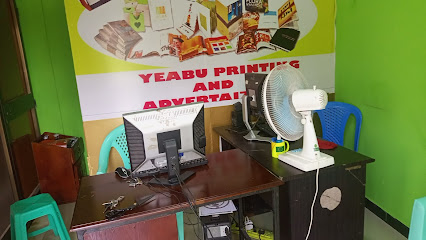
Beto
Discover the literary treasures of Gambela at Beto, a charming bookstore offering a rich selection of local and international literature.

Essential bars & hidden hideouts
Union Cocktail Bar & Restaurant
Discover the lively atmosphere and delicious flavors at Union Cocktail Bar & Restaurant in Addis Ababa, where every bite and sip tells a story.
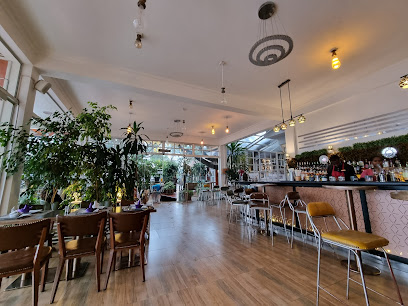
Black Rose Lounge
Discover the vibrant nightlife of Addis Ababa at Black Rose Lounge, where stylish ambiance meets exquisite drinks and lively music.
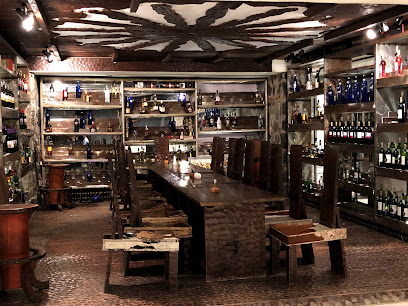
Black Pearl sports Bar
Experience the lively nightlife at Black Pearl Sports Bar in Addis Ababa, where great drinks and sports unite in a vibrant atmosphere.
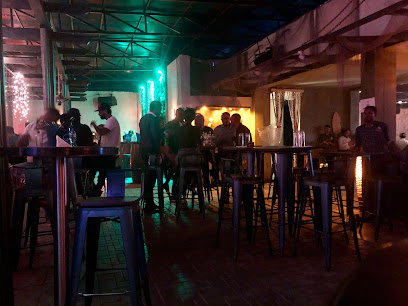
Kana Restaurant and Bar
Experience authentic Ethiopian cuisine at Kana Restaurant and Bar in Lalibela, where tradition meets flavor in a welcoming atmosphere.
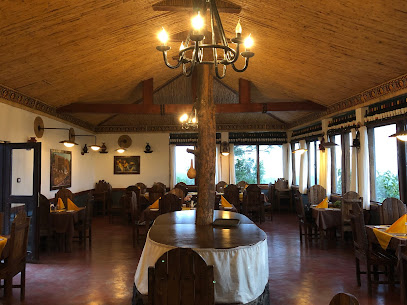
Noble House Cocktails | Kazanchis | ኖብል ሃውስ ኮክቴል | ካሳንቺስ
Discover the best cocktails in Addis Ababa at Noble House Cocktails, where vibrant atmosphere meets exquisite mixology.

The Roof Lounge | Bole | ዘ ሩፍ ላዉንጅ | ቦሌ
Experience stunning city views and vibrant nightlife at The Roof Lounge in Bole, Addis Ababa – the perfect spot for relaxation and entertainment.
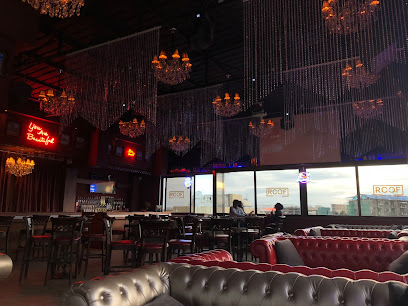
eyasu cafe & breakfast
Experience the rich flavors of authentic Ethiopian breakfast at Eyasu Cafe & Breakfast in Dinfo, where culinary tradition meets warm hospitality.
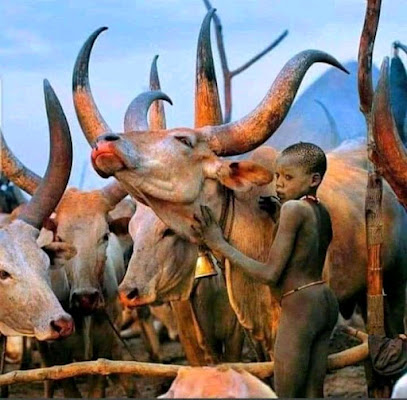
Viking Bar
Discover vibrant nightlife and local flavors at Viking Bar in Addis Ababa, where great drinks and good company await.
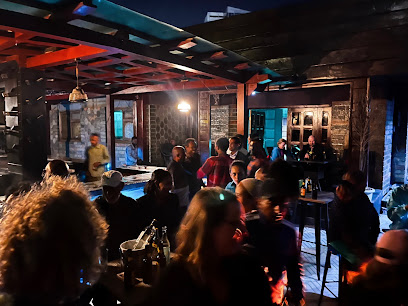
Frost Cafe & Bar
Discover the cozy charm of Frost Cafe & Bar in Gambela, where delicious Ethiopian cuisine meets warm hospitality in a welcoming environment.
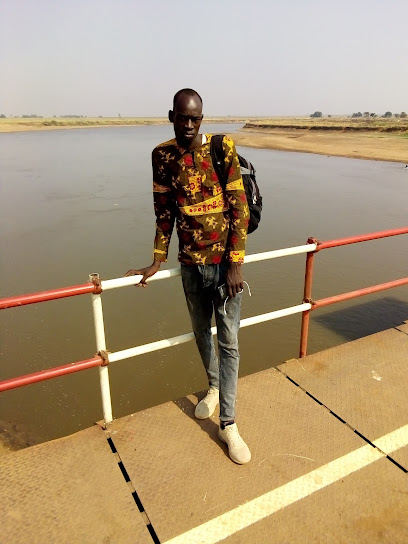
Meklit Bar & Restaurant
Discover the flavors of Ethiopia at Meklit Bar & Restaurant, where authentic cuisine meets the warmth of local hospitality in Gambela.
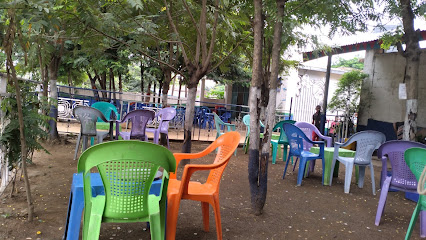
Merewa Hotel
Discover the vibrant atmosphere at Merewa Hotel, a top bar in Gambela offering a unique blend of local culture and refreshing beverages.

Bar Rasta King
Discover Bar Rasta King in Gambela for a lively nightlife experience, featuring local drinks and a vibrant atmosphere.
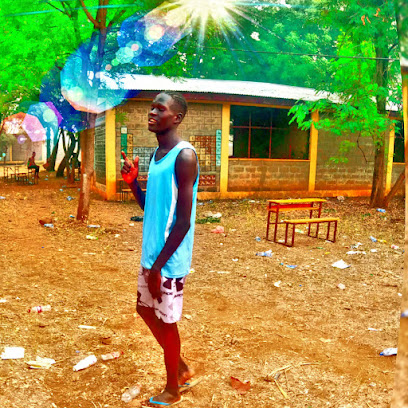
Asir Aleka አስር አለቃ
Experience the vibrant nightlife and local culture at Asir Aleka አስር አለቃ, a lively bar in Gambela, Ethiopia, perfect for tourists seeking entertainment.
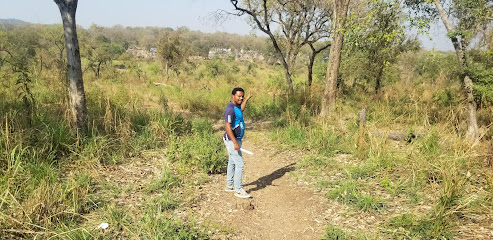
Hollywood Area
Discover the vibrant nightlife of Gambela at Hollywood Area, a premier live music bar featuring diverse performances and a lively atmosphere.

Local Phrases about Gambella National Park
-
- Helloሰላም
[salam] - Goodbyeወደላዋ
[wadala] - Yesአዎ
[awo] - Noአይደሉም
[aydelum] - Please/You're welcomeእባክዎ
[ebakewo] - Thank youአመሰግናለሁ
[amesegnalehu] - Excuse me/Sorryስትወልድ
[sitweld] - How are you?እንዴት ነህ?
[endet neh?] - Fine. And you?ጠበቅህ። እኔ እለምን?
[tebekih. ene elemen?] - Do you speak English?እንዴት እንዴት አማርኛ እየሩ።
[endet endet amarenya eyru.] - I don't understandአማረኝ።
[amareng.]
- Helloሰላም
-
- I'd like to see the menu, pleaseቡናልን መሸገም እንዴት እንዴት እላለሁ።
[bunalin meshagem endet endet elalehu.] - I don't eat meatአምጣኛ አንቺ።
[amtagna anchi.] - Cheers!ሸጉር!
[shegur!] - I would like to pay, pleaseእባክዎ በሚከተለው እንዴት እላለሁ።
[ebakewo bimeketelwe endet elalehu.]
- I'd like to see the menu, pleaseቡናልን መሸገም እንዴት እንዴት እላለሁ።
-
- Help!እር!
[er!] - Go away!አብቅ!
[abek!] - Call the Police!ፖሊስን አይደሉም!
[polisn aydelum!] - Call a doctor!የሃችውን አይደሉም!
[yehachwen aydelum!] - I'm lostእኔ ወደዚህ አብረህ።
[ene wadizi abereh.] - I'm illእኔ የምታገኙ።
[ene yematagenu.]
- Help!እር!
-
- I'd like to buy...ምን አለህ ተወዳጁ...
[min aleh tewadaju...] - I'm just lookingቀረበኛለን
[kerbenaln] - How much is it?እባክዎ በድምፅ እንዴት ነው?
[ebakewo bedims endet new?] - That's too expensiveይህን አስቀማለሁ
[yihun askeemalehu] - Can you lower the price?እባክዎ በድምፅ ውስጥ መጠን አለን?
[ebakewo bedims wist matsen alen?]
- I'd like to buy...ምን አለህ ተወዳጁ...
-
- What time is it?ሰዓት ነው?
[s'at new?] - It's one o'clockአንድ ሰዓት ነው
[and s'at new] - Half past (10)አምስት በላይ ሰዓት
[amist baly s'at] - Morningጥዎቅ
[tiwoq] - Afternoonከሳሽ
[kesash] - Eveningሌሊት
[lelit] - Yesterdayትናንስ
[tanas] - Todayዛሬ
[zare] - Tomorrowነገ
[nage] - 1አንድ
[and] - 2ሁለት
[hulet] - 3ሶስት
[sost] - 4አራት
[arat] - 5አምስት
[amist] - 6ስድስት
[sidist] - 7ሰባት
[sebat] - 8ስምንት
[simint] - 9ዘጠኝ
[zetegna] - 10አስር
[asar]
- What time is it?ሰዓት ነው?
-
- Where's a/the...?በራራ ወይም በሚደረግ...
[berara woye bemiderg...] - What's the address?አድማስ ምን ነው?
[admas min new?] - Can you show me (on the map)?እባክዎ ምርጥ አለብኝ።
[ebakewo mirt alben?] - When's the next (bus)?የቀን በዚች እየረፈሽ ነው?
[yek'en bezi eyerefes new?] - A ticket (to ....)ቲኬት (ወደ...)
[ticket (wede...)]
- Where's a/the...?በራራ ወይም በሚደረግ...
History of Gambella National Park
-
Gambella National Park was officially established in 1973 by the Ethiopian government. The park was created to preserve the unique ecosystem and biodiversity of the region, providing a sanctuary for numerous species of wildlife and plants.
-
The Nuer and Anuak people are indigenous communities that have lived in the Gambella region for centuries. These groups have a rich cultural heritage, with traditions deeply connected to the land and its resources. They practice a blend of pastoralism and agriculture, and their cultural practices are an integral part of the region's identity.
-
During the early 20th century, the Gambella region became strategically significant due to its location near the Sudanese border. The Anglo-Ethiopian Agreement of 1902 established the boundaries between Ethiopia and the Sudan, impacting the governance and control of the area. This period saw increased interaction between local communities and colonial powers.
-
The Baro River, which flows through Gambella National Park, has historically been a vital waterway for trade and transportation. It served as a major route for the transport of goods between Ethiopia and Sudan, facilitating economic exchanges and cultural interactions over the years.
-
Gambella National Park is renowned for its diverse wildlife, including significant populations of Nile lechwe, white-eared kob, and elephants. Conservation efforts have been ongoing to protect these species and their habitats from threats such as poaching and habitat destruction. Various international and local organizations have collaborated to promote sustainable conservation practices.
-
The Gambella region has experienced periods of civil conflict, particularly during the late 20th and early 21st centuries. These conflicts have affected the local communities and the park's ecosystem. Efforts to rebuild and restore the area have been ongoing, with a focus on promoting peace and stability.
-
In recent years, Gambella National Park has emerged as a destination for ecotourism, attracting visitors interested in its unique landscapes and wildlife. The Ethiopian government and various organizations have been working to develop sustainable tourism practices that benefit both the environment and local communities, ensuring the park's preservation for future generations.
Gambella National Park Essentials
-
Gambella National Park is located in the Gambella Region of western Ethiopia. The nearest major airport is Addis Ababa Bole International Airport (ADD), approximately 777 kilometers away. From Addis Ababa, you can take a domestic flight to Gambella Airport (GMB), which takes around 1.5 hours. From Gambella Airport, the park is accessible by road, typically requiring a 1 to 2-hour drive. Alternatively, you can travel by bus or car from Addis Ababa to Gambella, but this journey can take up to 12-14 hours due to road conditions.
-
Within Gambella National Park, transportation options include guided tours with 4x4 vehicles, which are highly recommended due to the park's terrain. Local taxis and minibuses are available in the nearby town of Gambella, but their availability can be limited. For a more flexible and convenient experience, consider hiring a private vehicle with a local driver who is familiar with the area. Walking trails are also available for those who wish to explore on foot, but always do so with a guide.
-
The official currency in Ethiopia is the Ethiopian Birr (ETB). Cash is the preferred method of payment in Gambella and within the national park. Credit cards are rarely accepted, so it is advisable to carry sufficient cash. ATMs are available in the town of Gambella, but it is prudent to withdraw enough money in Addis Ababa before traveling to more remote areas. Ensure you have small denominations, as change can often be an issue.
-
Gambella National Park is generally safe for tourists, but visitors should take standard precautions. Be aware of your surroundings and avoid displaying valuables. Certain areas in the Gambella Region have higher crime rates, including petty theft and pickpocketing, especially in crowded places like markets. Avoid walking alone at night and always travel with a guide when exploring the park. It is also advisable to stay informed about any regional conflicts or political unrest before traveling.
-
In case of an emergency, dial 911 for immediate assistance. However, response times may vary due to the remote location. The nearest medical facilities are in the town of Gambella, although they may lack advanced medical equipment. It is crucial to have travel insurance that covers medical evacuations. For minor health issues, bring a basic first aid kit and any necessary medications. Keep emergency contact numbers handy and inform your guide or accommodation about your whereabouts.
-
Fashion: Do dress modestly, covering shoulders and knees, especially in local communities. Avoid wearing flashy or revealing clothing. Religion: Do respect local customs and religious practices. Always ask for permission before taking photos of religious sites or local people. Public Transport: Do be patient, as schedules can be unpredictable. Don't expect western standards of punctuality. Greetings: Do greet people with a handshake and a smile. It is polite to use both hands when offering or receiving something. Eating & Drinking: Do try local dishes and accept food graciously. Don't waste food, as it is considered disrespectful.
-
To experience Gambella National Park like a local, visit during local festivals to witness traditional ceremonies and dances. Engage with local guides who can offer insights into the park's wildlife and cultural heritage. Try traditional cuisine such as 'kitfo' (minced raw beef) and 'injera' (sourdough flatbread) from local eateries. Participate in community-led eco-tourism projects that support local livelihoods. Don't miss the opportunity to see the park's diverse wildlife, including Nile lechwe, white-eared kob, and various bird species.
Nearby Cities to Gambella National Park
-
Things To Do in Arba Minch
-
Things To Do in Debre Markos
-
Things To Do in Awasa
-
Things To Do in Addis Ababa
-
Things To Do in Bahir Dar
-
Things To Do in Gulu
-
Things To Do in Gondar
-
Things To Do in Lira
-
Things To Do in Arua
-
Things To Do in Lalibela
-
Things To Do in Mbale
-
Things To Do in Kitale
-
Things To Do in Teseney
-
Things To Do in Eldoret
-
Things To Do in Jinja






